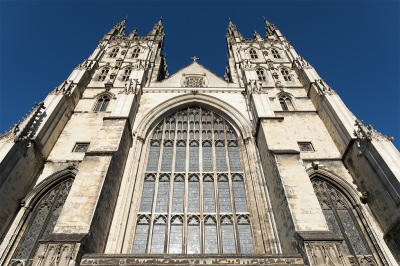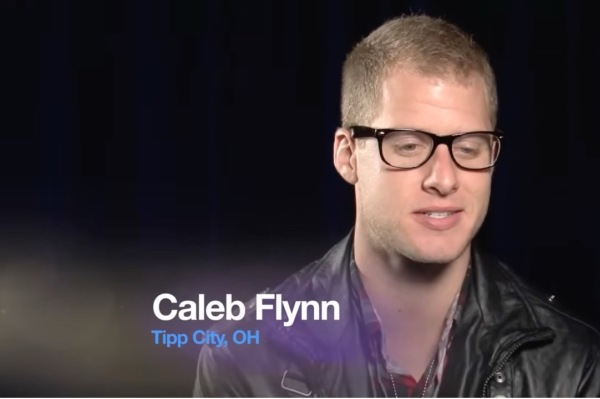The Church of England takes a 'third way' on gay marriage

Earlier this week, the Guardian reported that the Leader of the House of Commons, the Conservative Penny Mordaunt, had written a letter to her local bishop, pressing for the Church of England to use the forthcoming General Synod to change its stand on gay marriage. She pointed out that the Church's continued failure to support gay marriage is at odds both with the civil law of the land and with the acceptance of such unions by both the Church of Scotland (Presbyterian) and the Episcopal Church of Scotland. In addition, she argued that the Church’s position continues to cause “pain and trauma” to many LGBTQ+ people and makes them feel like second-class citizens.
The letter, and the responses of other MPs outlined in the Guardian’s report, offer many interesting insights into contemporary British (and indeed Western) culture. “Trauma,” for example, has to be one of the words most subject to grade inflation over the last decade. It used to refer to serious bodily injury. Now it seems to operate as an emotive catch-all for anything that makes anyone feel somewhat uncomfortable. If LGBTQ+ individuals are truly “traumatized” by the fact that their unions are not sanctified by an institution that was already socially and culturally irrelevant to most English people when I was at school in the 1980s, then the bar for trauma is, I fear, heading in a subterranean direction. Perhaps it is time to retire the T-word as a trivialized term and an insult to the truly traumatized.
Second, it raises the question of what exactly conservatism is today, as Mordaunt represents the Conservative Party. The Trump phenomenon indicated a bankruptcy of ideas in political discourse, thriving for a brief time in a world where the left was detached from the reality of most people’s concerns and a right that seemed to define itself simply in terms of reaction. But Trump is fading, as is the moment that gave the British people Brexit. What do conservatives have to offer for the future? Little more, it seems, than progressive pieties glossed with a traditionalist veneer. What exactly do they wish to conserve? Not much, if Mordaunt is representative (and as Leader of the House, she is scarcely a political outlier). The conservatism represented by Penny Mordaunt seems to have adopted the basic tenets of anti-conservatism.
Third, the Church of England is the established church and therefore has to take account of the opinions of the political class. It has an important position within English law and life, even if its parish churches and cathedrals are irrelevant to most individuals. And that status means that there is an expectation that its values and practices will reflect those of society as a whole. Hence the letter of Penny Mordaunt, while no doubt outrageous to orthodox Anglicans, still makes sense. And on other issues — most recently the ordination of women — the Church has typically obliged by conforming itself to the social mores and expectations of wider English society.
In light of this, it came as something of a surprise that the Anglican bishops voted this week to stand firm on gay marriage. The result is somewhat qualified — the bishops also voted to permit blessings and prayers for same-sex civil partnerships and to issue a forthcoming apology about past sins against LGBTQ+ people. Archbishop of Canterbury Justin Welby, however, is apparently delighted:
“This response reflects the diversity of views in the Church of England on questions of sexuality, relationships and marriage. I rejoice in that diversity and I welcome this way of reflecting it in the life of our church. I hope it can offer a way for the Church of England, publicly and unequivocally, to say to all Christians and especially LGBTQI+ people, that you are welcome and a valued and precious part of the body of Christ.”
Or, to put it more concisely in the words of Neville Chamberlain, “Peace in our time.”
The solution is, of course, no real solution. Fine distinctions — particularly fine distinctions that attempt to soften the opposition between the contemporary cultural consensus on gay marriage and Christianity’s understanding of the same — are unlikely to be sustainable for any extended period of time.
The Church of England will receive pressure on this issue from two different directions. There is the obvious internal, doctrinal pressure. To bless something or pray for something is surely to acknowledge that it is a religious good at some level. If a same-sex civil partnership is just a legally formalized friendship, it does not seem necessary for the Church to bless or pray for the partnership as a partnership. Blessing or praying for friendship would seem to be enough. But the Church of England knows that civil partnership is not just a formalized friendship. Rather, the bishops are grabbing hold of it as a “third way” that allows them to grant something to the opposition in exchange for tolerance of their traditional position; this amounts to allowing gay marriage in all but name. If such partnerships are legitimate, why deny them the status of marriage? And if they are not legitimate, why bless them? As Archbishop Welby must know, the progressives do not regard the “third way” as an option — and have not for many years. Peace in our time, maybe, but not for very long, I’ll wager.
Second, there will be external pressure that will push the issue of disestablishment to the fore. LGBTQ+ activists will not accept a compromise. Indeed, Jayne Ozanne, an LGBTQ+ campaigner, immediately described the bishops' decision as “utterly despicable,” a claim supported by the inevitable reference to the T-word. Penny Mordaunt’s intervention may have been little more than a display of vapid emotivism, but she is Leader of the House of Commons, not an empty or marginal office. And others are already calling for the removal of the Church’s religious exemption under the Equality Act. This should not be a surprise: Religious exemptions are only as strong as the notion that religion is good for society. Nobody in power actually expects religions to use them for that for which they were intended; such behavior will always be found unacceptable. And the panjandrums of contemporary culture certainly do not consider traditional Christian sexual ethics to be anything but harmful.
Legislating disestablishment would no doubt be a procedurally complicated and time-consuming matter, and may ultimately not be considered worth the time, given the Church of England’s merely ceremonial significance for most people. But it will certainly be a matter for discussion in the coming years. And the fate of the Church of England will be a bellwether for churches everywhere in the West, established or not.
Attempts to appease the culture warriors with fine distinctions, lavish rhetorical apologies, and endless blather about social justice will not save us, any more than blessing civil partnerships will save Archbishop Welby. When it comes to the laws of progressive culture, he who is guilty in one point is guilty in all.
Originally published at First Things.
Carl R. Trueman is a professor of biblical and religious studies at Grove City College. He is an esteemed church historian and previously served as the William E. Simon Fellow in Religion and Public Life at Princeton University. Trueman has authored or edited more than a dozen books, including The Rise and Triumpth of the Modern Self, The Creedal Imperative, Luther on the Christian Life, and Histories and Fallacies.





















